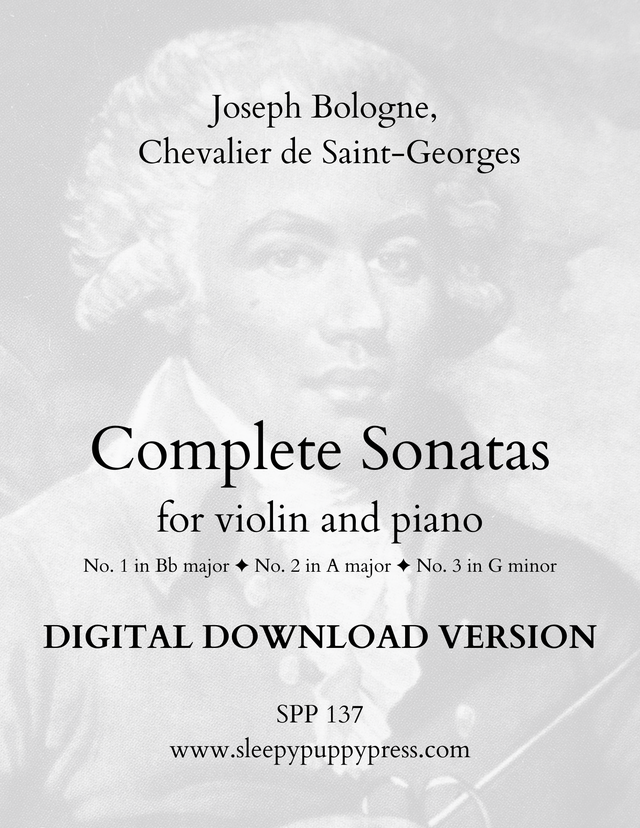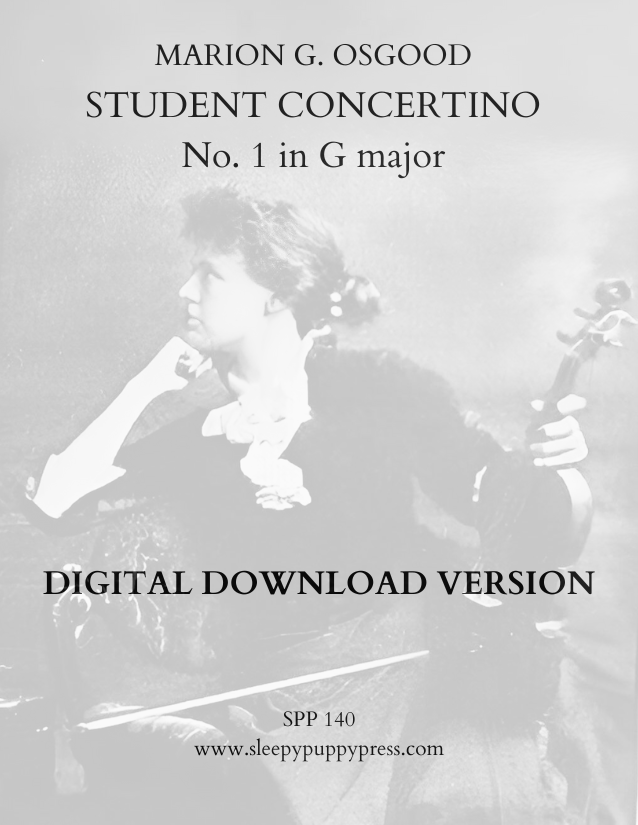Search the store:
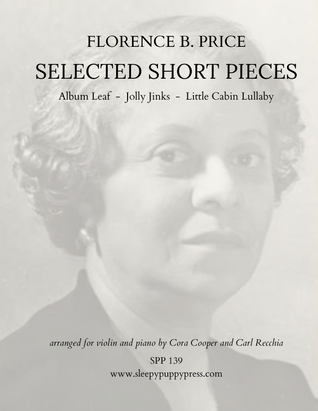
Originally for solo piano, the gorgeous melodies and infectious fun found in these three short pieces by Florence Price were too tempting to resist! Arranged for violin and piano by Cora Cooper and Carl Recchia, they work well as a set in recital, separate encores, or teaching pieces for intermediate to advanced students. Available in print or digital format!
Little Cabin Lullaby:
https://vimeo.com/919392929?share=copy
Album Leaf:
https://vimeo.com/921824608?share=copy
New Publications
What's better than one student concertino written by a woman? Two!
Marion G. Osgood (1859-ca. 1948) was born in Boston, where she studied with Julius Eichberg. Osgood became a sought-after violin soloist and teacher and the founder of the first professional "ladies" orchestra in America-- where the group was actually paid for its work.
Each concertino has three movements (fast/slow/fast), all within the range of 1st-3rd position.
Their different in characters means you can suit any student's preference! The first is bright and lively, and the second dark and tempestuous. You can listen to the first movements at the links below or on the product pages.
Each one available in print and digital versions.
Concertino No. 1 in G major:
https://vimeo.com/931278501?share=copy
Click on the links for print and digital versions.
Concertino No. 2 in A minor:
https://vimeo.com/955375848?share=copy
Click on the links for print and digital versions.
Marion G. Osgood (1859-ca. 1948) was born in Boston, where she studied with Julius Eichberg. Osgood became a sought-after violin soloist and teacher and the founder of the first professional "ladies" orchestra in America-- where the group was actually paid for its work.
Each concertino has three movements (fast/slow/fast), all within the range of 1st-3rd position.
Their different in characters means you can suit any student's preference! The first is bright and lively, and the second dark and tempestuous. You can listen to the first movements at the links below or on the product pages.
Each one available in print and digital versions.
Concertino No. 1 in G major:
https://vimeo.com/931278501?share=copy
Click on the links for print and digital versions.
Concertino No. 2 in A minor:
https://vimeo.com/955375848?share=copy
Click on the links for print and digital versions.
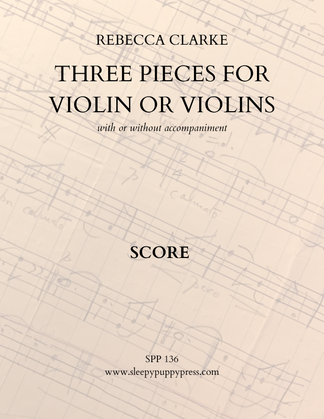
Three short pieces, one a violin duet, and the other two just melodies written on a legal pad turned sideways and used as bookmarks... what to do? You hire talented graduate students to write accompaniments! And not just one accompaniment, but one for a 2nd violin, and one for piano for each of the two pieces. The results are wonderful, making these incredibly useful for teaching or recital. Available in print or digital formats, including a score and parts. Links for videos of the two versions of Lament below; links to all videos on the product pages.
Lament for two violins
Lament for violin and piano
Lament for two violins
Lament for violin and piano
Lament accompaniments by Andrew S. Bell
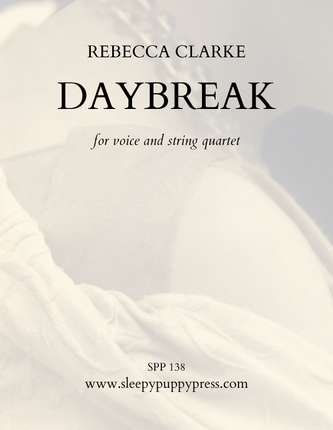
Rebecca Clarke wrote many songs for voice and piano, in addition to two sets for voice and violin. Daybreak is a stunning setting of a text by poet John Donne (1572-1631) for voice and string quartet. It may be sung by either female or male voice. Includes one score and individual string parts, and available in print and digital versions. Find it in the "New!", "Other Ensembles", and "Digital Versions" categories, linked on the left. Video on the product page!
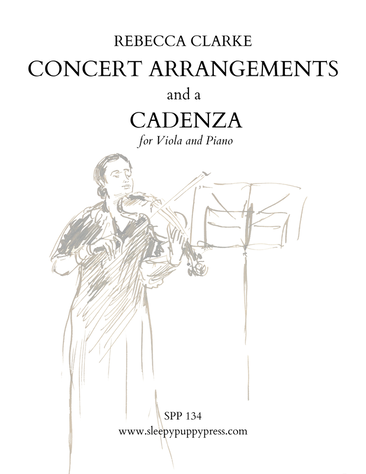
VIOLISTS REJOICE! This new volume, "Concert Arrangements and a Cadenza" by Rebecca Clarke contains three never-before published arrangements Clarke made for her concertizing use, and her own cadenza to the third movement of the B minor Handel/Casadesus concerto. Arrangements are of:
Grainger, The Sussex Mummers' Christmas Carol; Parry, Sarabande; Marchant, Irish Melody (Emer's Farewell to Cucullain, or Londonderry Air)
Edited by Caroline Castleton and Christopher Johnson
Find the print and digital versions, with performance videos of the Grainger and the cadenza in the "Solo Instrument and Piano" category!
Grainger, The Sussex Mummers' Christmas Carol; Parry, Sarabande; Marchant, Irish Melody (Emer's Farewell to Cucullain, or Londonderry Air)
Edited by Caroline Castleton and Christopher Johnson
Find the print and digital versions, with performance videos of the Grainger and the cadenza in the "Solo Instrument and Piano" category!




